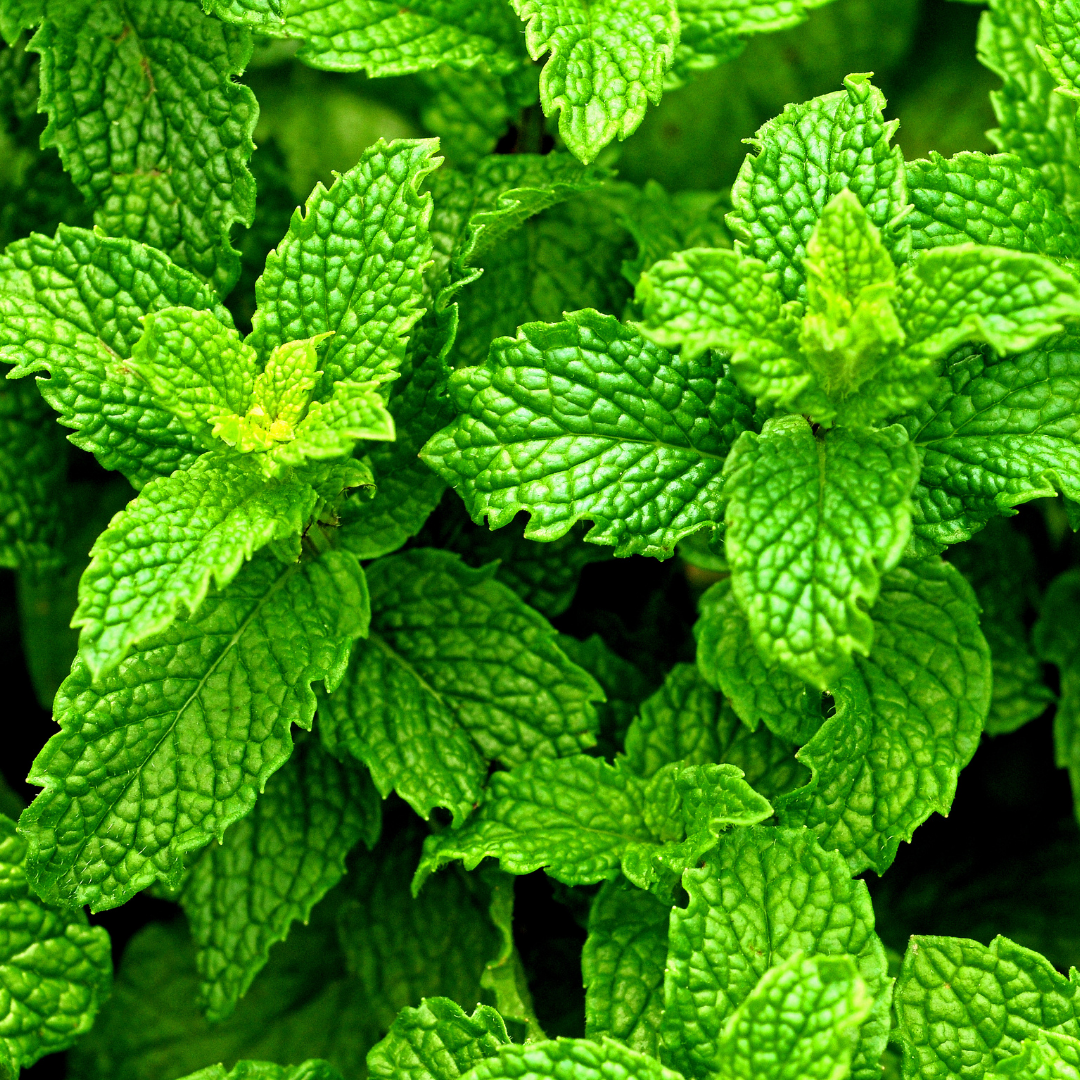
Peppermint
Scientific Name: Mentha × piperita
Common Name: Peppermint
Health Benefits:
Supports Digestive Health:
- Helps relieve bloating, gas, and indigestion by relaxing the gastrointestinal muscles.
- May reduce symptoms of irritable bowel syndrome (IBS), such as abdominal pain and cramping.
Soothes Respiratory Health:
- Contains menthol, which acts as a natural decongestant, helping to clear sinuses and ease symptoms of colds and allergies.
- Relieves sore throats and may suppress coughs.
Promotes Mental Clarity and Focus:
- The aroma of peppermint stimulates the brain, enhancing alertness, concentration, and memory.
- May reduce mental fatigue and improve mood.
Relieves Headaches and Muscle Pain:
- Cooling and anti-inflammatory properties help reduce tension headaches and muscle soreness when applied topically as oil or balm.
Antimicrobial Properties:
- Inhibits the growth of certain bacteria and fungi, supporting oral health and overall immunity.
Vitamins and Minerals:
- Vitamin A: Supports vision and immune health.
- Calcium: Helps maintain strong bones and muscle function.
- Potassium: Supports heart health and fluid balance.
Active Compounds:
- Menthol: A bioactive compound that provides a cooling sensation, relieves pain, and soothes respiratory and digestive discomfort.
- Rosmarinic Acid: An antioxidant with anti-inflammatory properties.
- Flavonoids: Provide additional antioxidant and immune-supportive benefits.
Safety Information:
Gastroesophageal Reflux Disease (GERD):
- Peppermint may relax the lower esophageal sphincter, worsening acid reflux symptoms in some individuals.
Drug Interactions:
- May interact with antacids or medications for acid reflux. Consult a healthcare provider if you are taking such medications.
Usage Guidelines:
- Safe when consumed in tea or culinary amounts. Essential oils should be diluted before topical use and never ingested unless under professional supervision.
Forms of Peppermint:
- Dried Leaves: Commonly used for teas and infusions.
- Peppermint Oil: Used aromatically or topically for headaches, congestion, and relaxation.
- Fresh Leaves: Added to beverages, desserts, or savory dishes for flavor and freshness.
Fun Fact:
Peppermint has been cultivated since ancient times and was highly valued in Roman and Egyptian cultures for its aromatic and medicinal properties.
Note:
This information is for educational purposes only and is not intended to replace medical advice. Always consult with a healthcare professional before using herbal products, especially if you are pregnant, nursing, or taking any medications.



